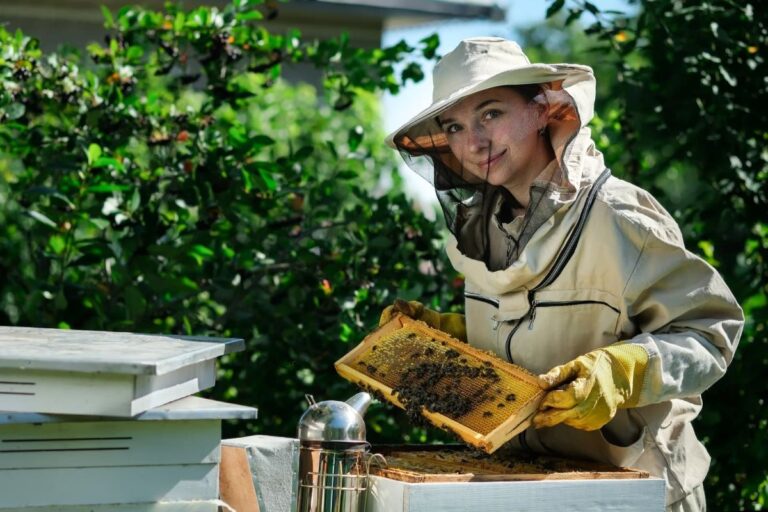The Science of Taste: Why Food Tastes Better on Vacation
Ever noticed how food tastes better on vacation? You’re not imagining it. There’s real science behind this delicious phenomenon. It’s not just about the food, so let’s dive into why your taste buds come alive when you’re away from home.
1. Novelty and Anticipation

The excitement and anticipation of trying new foods stimulate the brain’s reward system more than the routine meals at home. This heightened state of anticipation enhances the overall sensory experience.
2. Relaxed State of Mind

Being on vacation generally means being more relaxed and stress-free. This relaxed state allows you to be more present and mindful when eating, intensifying the flavors you experience.
3. Enhanced Senses

Your senses are keener when you’re in new surroundings. The unfamiliar sights, sounds, and smells can make the taste of food seem more intense and enjoyable.
4. The Role of Environment

The ambiance where you eat can significantly affect how food tastes. A beautiful setting can enhance your dining experience, making the food taste better.
5. Psychological Association

Your brain associates vacation with pleasure and relaxation. This positive mindset can make everything seem better, including your meals.
6. Absence of Routine

Breaking away from your daily routine and typical food choices can make vacation meals more exciting. This lack of routine makes every meal an event, rather than just another part of the day.
7. Local and Fresh Ingredients

Vacation spots often offer food that is fresher and made with local ingredients, which can genuinely enhance the flavor compared to what you might eat at home.
8. Cultural Enrichment

The experience of immersing yourself in a different culture includes dining on local cuisine, which is often prepared in ways that are unfamiliar and delightful to your palate.
9. Increased Appetite

Being more active during vacations—whether exploring cities, hiking, or swimming—can increase your appetite. Food naturally tastes better when you’re hungrier.
10. Social Dining

Eating with friends or loved ones in a relaxed setting without time constraints often leads to longer meals and more enjoyment, enhancing how you perceive your food.
11. Memory Bias

Your memory plays tricks on you. You’re more likely to remember and cherish the positive experiences of vacation, including the meals, which can tint your retrospective views on how food tasted.
12. Experimentation and Openness

On vacation, you’re more likely to try foods outside your usual preferences, which can lead to exciting discoveries and a greater appreciation of diverse flavors.
13. Sensory Adaptation

At home, your taste buds can become accustomed to certain flavors. On vacation, new tastes stand out more because they contrast with what you’re used to.
14. The ‘Halo Effect’

The overall enjoyment of your vacation can create a ‘halo effect,’ where your positive feelings about the trip make everything associated with it, including food, seem better.
15. Professional Preparation

In tourist destinations, particularly those known for their cuisine, dishes are often prepared by expert chefs who know how to showcase their culinary skills to travelers.
16. Expectation Versus Reality

Sometimes, the expectation of trying a renowned dish can enhance your perception of its taste, especially if it’s been highly recommended by locals or travel guides.
17. Weather and Climate

Certain climates can affect how you taste food. For example, warmer weather can make you crave and appreciate lighter, fresher meals more than you would in colder climates.
18. Mindfulness and Savoring

Vacation is one of the few times people truly savor their food, eating slowly and appreciating each bite, which can significantly enhance the taste experience.
Savor the Flavor

Understanding why food tastes better on vacation gives you more reasons to savor every meal on your next trip. Whether it’s the freshness of the ingredients, the joy of discovery, or simply the pleasure of eating without stress, every bite is a bit more delicious when you’re away from home.
Not All Tea Is Good for You: List of Teas to Avoid and to Stick To

Not all teas are healthy and some might actually harm your health with poor ingredients. But how can you tell the good from the bad? This guide aims to help you make informed choices without turning you into a tea expert overnight. Not All Tea Is Good for You: List of Teas to Avoid and to Stick To
America’s Spiritual Revolution: Turning Away from Christianity to Embrace Alternatives

As church attendance declines, Americans are exploring diverse spiritual paths, from stargazing druids to unconventional deities like Wi-Fi gods and extraterrestrials. Explore the quirky and sometimes controversial new religions capturing attention as people seek meaning beyond traditional Christianity. America’s Spiritual Revolution: Turning Away from Christianity to Embrace Alternatives
25 Must-Try Global Delicacies

From Bangkok’s bustling streets to Parisian cafes, every corner of the world offers something special for your taste buds. And you don’t have to travel far; even in the USA, you can find a world of flavors. Here are 25 global delicacies every foodie should try, including some local favorites! 25 Must-Try Global Delicacies
16 Affectionate Gestures to Keep the Romance Alive

Sustaining romance in a relationship needs deliberate actions and research-backed gestures to foster intimacy. Here are 16 evidence-based romantic gestures, with steps to integrate them into your relationship and revive the spark. 16 Affectionate Gestures to Keep the Romance Alive
21 Top Christian Attractions to Explore in the U.S.

The U.S. is rich in spiritual destinations, offering awe-inspiring sites for both believers and curious travelers. Explore the 21 most popular Christian attractions across the country, where architecture, history, and faith converge. 21 Top Christian Attractions to Explore in the U.S.
The post The Science of Taste: Why Food Tastes Better on Vacation first appeared on Hello Positive Mindset.
Featured Image Credit: Shutterstock / RossHelen.
For transparency, this content was partly developed with AI assistance and carefully curated by an experienced editor to be informative and ensure accuracy.






